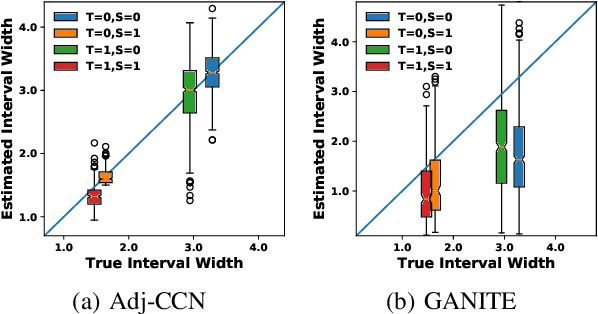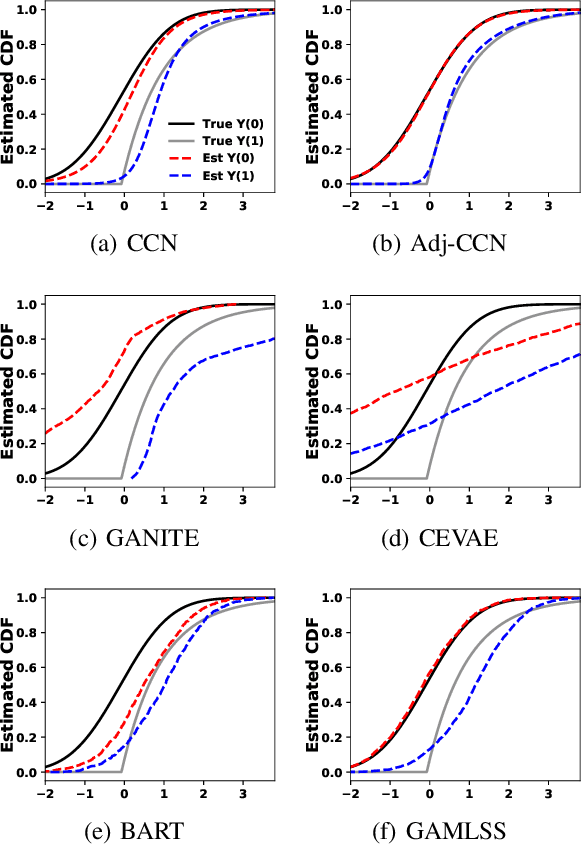Estimating Potential Outcome Distributions with Collaborating Causal Networks
Paper and Code
Oct 04, 2021



Many causal inference approaches have focused on identifying an individual's outcome change due to a potential treatment, or the individual treatment effect (ITE), from observational studies. Rather than only estimating the ITE, we propose Collaborating Causal Networks (CCN) to estimate the full potential outcome distributions. This modification facilitates estimating the utility of each treatment and allows for individual variation in utility functions (e.g., variability in risk tolerance). We show that CCN learns distributions that asymptotically capture the correct potential outcome distributions under standard causal inference assumptions. Furthermore, we develop a new adjustment approach that is empirically effective in alleviating sample imbalance between treatment groups in observational studies. We evaluate CCN by extensive empirical experiments and demonstrate improved distribution estimates compared to existing Bayesian and Generative Adversarial Network-based methods. Additionally, CCN empirically improves decisions over a variety of utility functions.
 Add to Chrome
Add to Chrome Add to Firefox
Add to Firefox Add to Edge
Add to Edge